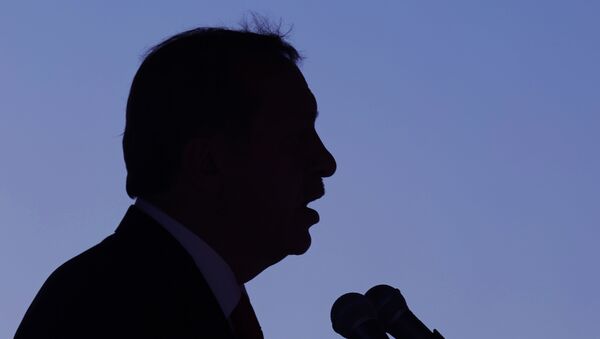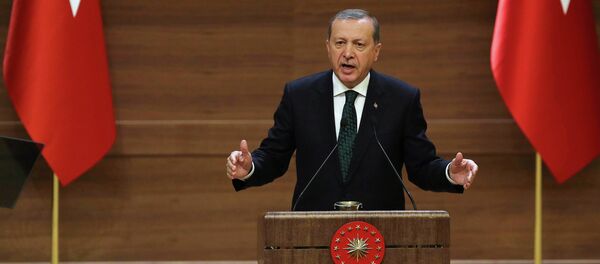A car bomb was detonated near a police station and a dormitory in the town of Cinar, Diyarbakir Province, late on Wednesday, killing six, including a policeman, another policeman's wife and her baby, as well as a local woman with her two children, the newspaper Turkish Daily Sabah said. The blast injured 30 additional people, including six policemen.
Turkish officials have blamed the attack on Kurdistan Workers' Party (PKK).
"The terrorist attack organized by PKK [Kurdistan Workers' Party] in Diyarbakir only plays into the hands of the state and the policies of Erdogan. In the current situation, the government must divide the whole of Turkish society into "enemies" and "friends," and that's what we're seeing," Insel told Sputnik.
Previously, Turkish academics had criticized Western countries for their unwillingness to criticize Erdogan for his anti-Kurdish policies in the southeastern part of the country. However, as the West began to publically condemn the actions of the Turkish government against Kurds and the academics, who urged the government to sit down at the negotiation table with PKK, the blast in Cinar ruined it all, Insel argued.
Meanwhile, the Turkish government's crackdown on academics continues. Earlier on Friday, at least 12 academics were detained due to alleged terrorist propaganda after they had signed a declaration condemning the government's military campaign against the Kurds and calling for peace in Southeastern Turkey.
"What's happening in Turkey right now can clearly be described as attacks on democratic freedoms," Insel told Sputnik.
Seeing dissent among the members of academia, the Turkish government has sought to mobilize nationalist and pro-regime forces to suppress any opposition sentiment in the society. Government measures taken against academics should not only be considered from the standpoint of academic freedom, but as part of a larger attack against freedom of speech and democratic values in Turkey, Insel explained.
A total of 1,128 academic from Turkey and around the world signed the document urging the Turkish government to stop the massacre in Kurdish-dominated provinces. Noam Chomsky, a renowned US scholar, was among those who signed the declaration.



